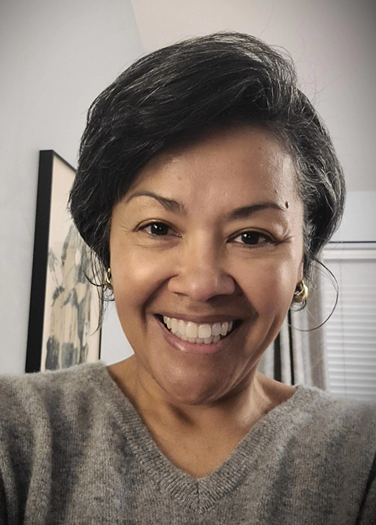Three Native American women share their experience in Corporate America. By Ariel Farinango (Native Inca), 2019 NAFOA Leadership Summit Alumnus, April 3, 2021, NAFOA
While Corporate America has boosted its diversity and inclusion efforts in recent years, Native Americans remain vastly underrepresented. It is important to include Native American talent in Corporate America, as these careers offer structured training grounds to continue growing professionally and personally. Navigating Corporate America is a hard task, but those with seats at the table have found ways to advocate for more representation and respect for Native peoples and values. The stories from the professionals below are testaments to the value and unique insight that comes with the inclusion of Native American talent in Corporate America.

Victoria Wright is a member of the Wampanoag Tribe of Gay Head Aquinnah. She began her corporate career at Merrill Lynch’s Wealth Management Group and later Bank of America, where she had the opportunity to provide multicultural marketing services to tribes and other minority groups. As Wright’s career and day-to-day responsibilities grew, she says she always “kept an eye out for how [she] or the firm could help tribes or tribal organizations.” While at Merrill Lynch, Wright became a member of the company’s Native American Professional Network. She says this employee network provided her and other Native professionals “the opportunity to speak to issues that are important to our community and raise those issues to senior management. Some of the issues included the Washington Football team sponsorship, Dakota Access pipeline, hiring and retaining of Native American employees, and Indigenous Peoples Day.” Wright says that “working in a large corporate environment where less than 1% of the employees are Native required [her] to be vocal.” She says her unique perspective encouraged her “to take every opportunity available to educate those that were unaware of the on-going concerns and issues Indian Country faced.”
While Wright’s involvement with the Native American Professional Network gave her the opportunity to be an advocate, she says she still “does not believe that there is enough Native representation in Corporate America.” Wright recommends that “institutions and Indigenous communities work together to increase representation and make a change. Institutions need to increase and diversify the number of schools they recruit from,” and that institutions need to do a better job of “providing mentors or sponsors to Native professionals.” Wright explains that “no one wants to work in an organization that does not acknowledge their presence or works in opposition to the issues that are important to them.” On the other hand, she also explains that “Indigenous communities need to encourage their youth to try new and different areas of study. Indigenous communities need to encourage students to stay in school and apply to professional internships. Natives that are already in Corporate America need to do a better job of mentoring other Native professionals and identifying viable candidates for open positions.” Wright understands that “this will not happen overnight” but she believes “change will happen once both entities work together.”

In contrast, Nancy M. Lowrey’s experience in Corporate America made her more aware of the need for institutions led by and directly serving Indian Country. Lowrey is a member of the Poarch Band of Creek Indians and founding partner of FS Advisors, Inc. with over 20 years of experience in the banking industry. She says that while she liked working for Corporate America for the learning opportunities, she decided to leave because she noticed the industry did not have a sufficient understanding of the needs of tribes, nor how to customize their service offerings for tribes. From her observations, “most financial contracts contain veiled legal dispute resolution options that put tribes in a position where they have to waive their sovereign immunity if they agree.” She says this realization made her motivated to “provide valuable services to a niche market” and lead to her founding FS Advisors.
By owning her own practice, Lowery says her firm is able to “work with banks and other professional service providers to ensure that her firm’s tribal clients are receiving the appropriate services while helping to protect a tribe’s sovereign immunity.” She says that “as tribes become more financially successful, they need investment products and financial services currently utilized in Corporate America. With a good knowledge of how these products and services are used in Corporate America, [Native professionals] will be more efficient in customizing these products/services for Indian tribes.” Lowery is optimistic about the future, explaining that “over the last 20 years, there has been a great advancement in realizing that tribes have solid business enterprises and more leading banks/financial institutions are establishing Native American divisions within their companies to work with tribal enterprises. These institutions and companies like FS Advisors provide more opportunities for Native Americans to build a rewarding career and to work in a professional industry delivering essential services to Indian Country.”

Lacey Horn is a member of the Cherokee Nation and CEO of Native Advisory LLC. Similar to Nancy Lowery, Horn’s experience in Corporate America made her more aware of how certain best practices could be applied within tribal communities. Coming out of college, she says she was able to utilize her network to secure a position at KPMG, a big-four accounting firm. Having worked as a Senior Audit Associate at KPMG, Lacey describes her time at the firm as “a second master’s degree because it gave me access to more professional education along with responsibilities and opportunities to move up the corporate ladder.” While at KPMG, Horn connected with “a Native CPA mentor who eventually became a life-long friend and career advisor.” She encourages Native youth and aspiring financial professionals to “work in an accounting or finance position in Corporate America for at least two years.” She says her experience doing so allowed her to “gain the additional expertise needed to serve Indian Country,” while at the same time acknowledging that “tribes can step up their game and help themselves when it comes to recruiting talent.” She says many corporate firms tend to attract young professionals because they “offer great benefits packages, stock incentives, and career advancement opportunities to their employees.” With many Fortune 500 companies announcing significant efforts toward diversity, she says “tribes and their youth need to be aware of these great opportunities. Tribes should then offer compensation packages to encourage youth to come back and work for them after they gain outside experience. It seems that attracting and retaining finance and accounting professionals is especially challenging for Tribes. Thinking differently about recruitment is one step to bringing talent back home” Horn says that “by investing in the right expertise, Indian Country will be investing in its future and financial well-being.”
